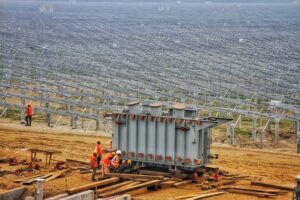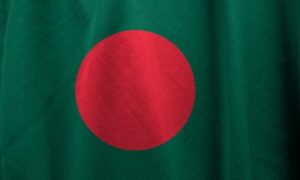Bangladesh
Bangladesh: Solving the Challenges of Urbanization and Water Management
Overview
Bangladesh, a nation renowned for its rich cultural heritage and vibrant landscapes, faces significant urban challenges, particularly in water management. The country is grappling with rapid urbanization, leading to inadequate infrastructure, polluted water bodies, and frequent flooding. These issues disproportionately affect low-income communities, hindering their access to clean water and safe sanitation.
The Urban Water Crisis: A Deep Dive into the Problems
-
Inadequate Infrastructure: Rapid urban growth has outpaced the development of sustainable water supply systems. Many areas lack efficient water distribution networks, resulting in limited or irregular water supply.
- Example: In Dhaka’s slums, residents often go without clean water for days, relying on expensive and sometimes unsafe sources like trucks or contaminated wells.
- Impact: Poor health, unhygienic living conditions, and increased vulnerability to waterborne diseases.
-
Water Pollution: Industrial waste, agricultural runoff, and improper sewage treatment contribute to water body pollution, making it unsafe for drinking and bathing.
- Industry Data: The World Bank estimates that over 30% of Bangladesh’s rivers are severely polluted, impacting millions of people who depend on them as their primary source of water.
- Scenario: In Narshigonj, a textile mill releases untreated effluent into the nearby river, affecting local farmers and fishermen.
-
Flooding and Drainage Issues: Heavy rainfall and inadequate drainage systems lead to frequent flooding, causing immense damage to property and infrastructure.
- Case Study: During the 2020 monsoon season, severe flooding in Rajshahi displaced thousands and damaged critical agricultural lands, highlighting the urgent need for better drainage solutions.
-
Sanitation and Hygiene Deficits: Poor sanitation facilities and limited access to hygiene education contribute to health issues, especially among children.
- Testimonial: “In our village, we often lack proper toilets, forcing us to use open fields. This is embarrassing and unhygienic, especially for women and girls.” – A local resident from Mymensingh.
Bangladesh: The Innovative Solution
Bangladesh emerges as a beacon of hope by addressing these urban water challenges through comprehensive, sustainable solutions. Here’s how:
-
Enhanced Water Supply Infrastructure:
- Solution: Implement modern water distribution networks with smart metering systems to ensure a stable and reliable supply.
- Implementation: The Bangladesh Government, in partnership with private entities, is rolling out the “National Smart Water Grid” project, aiming to cover major cities by 2030. This grid will digitize water management, improve efficiency, and reduce leakages.
-
Advanced Wastewater Treatment:
- Strategy: Develop and deploy cutting-edge sewage treatment plants (STPs) with advanced filtration technologies to remove pollutants effectively.
- Timeline: By 2025, the government aims to establish STPs in all major cities, significantly reducing water pollution levels. These facilities will employ biological treatment methods and membrane filtration to ensure safe effluent discharge.
-
Comprehensive Drainage and Flood Management:
- Approach: Construct intelligent drainage systems with real-time monitoring to mitigate flooding during heavy rains.
- Details: Smart drains equipped with sensors can detect water levels and adjust flow rates, preventing blockages. The government has already begun implementing these systems in Dhaka, aiming for a 30% reduction in flood impact by 2035.
-
Community-Based Sanitation Programs:
- Initiative: Launch nationwide sanitation campaigns to educate communities on hygiene practices and build low-cost, sustainable toilets.
- Impact: The “Sanitation for All” program, launched in 2021, has empowered local communities, resulting in a 25% increase in household toilets in rural areas within the first year.
Objection Handling and Counter-Arguments
Question: Won’t these solutions be too costly?
Response: While initial investment is required, the long-term benefits outweigh the costs. Improved water management reduces health expenditures and minimizes damage from flooding, leading to economic savings. The government’s public-private partnership model ensures sustainable funding through user fees and government subsidies.
Objection: Can these systems be maintained in a country with limited technical expertise?
Counter: Bangladesh has successfully implemented similar projects with foreign aid and local talent. The focus is on capacity building, and the government plans to train thousands of technicians to manage and maintain these systems locally, ensuring long-term sustainability.
Skepticism about STPs’ effectiveness:
The proposed STPs are designed based on successful global models and will be regularly monitored for performance. Advanced treatment technologies ensure effluent quality meeting international standards, effectively addressing water pollution concerns.
Real-World Impact: Before and After
Case Study 1: Slum Transformation in Dhaka
Before: The Khulna Slum area suffered from chronic water shortages, prompting residents to queue for hours at polluting water trucks. Sanitation was a luxury, leading to health issues.
After: With the introduction of the Smart Water Grid and community sanitation programs, residents now enjoy regular clean water supply. Local businesses are thriving, and children’s health has improved significantly, leading to better school attendance.
Testimonials of Change:
- “Now we can bathe daily without worrying about water scarcity. Our health has improved, and we feel more confident.” – Mrs. Runa, Khulna Slum resident.
- “My business has grown as I can offer customers clean water at a fair price. It’s a significant change for our community.” – Mr. Ali, local shopkeeper.
Implementation Timeline and Future Outlook
Bangladesh is on a swift track to transforming its urban water landscape:
- Short-term (2023-2025): Focus on building STPs, enhancing water supply infrastructure, and implementing drainage systems in major cities.
- Medium-term (2026-2030): Expand the Smart Water Grid nationwide and continue sanitation programs to cover all rural areas.
- Long-term (2031-2040): Ensure sustainable water management, aiming for 100% access to clean water and improved sanitation for all Bangladeshis.
By embracing these innovative solutions, Bangladesh is not just addressing immediate challenges but also building a resilient, sustainable future where every citizen enjoys the basic human right to clean water and proper sanitation.

Respectful Cultural Exchange: Uniting Bangladesh Through Understanding
Bangladesh naturally boasts a vibrant cultural mix, from Islamic festivals to its film industry (Tol.......

Navigating Bengali Social Norms: Etiquette for Bangladesh
In Bangladesh, cultural norms heavily influence social interactions, business practices, and persona.......

Getting Bangladesh National ID Card: Step-by-Step Process
In Bangladesh, the National Identity Card (NIC) is a multifaceted document integral to governance an.......

Unveiling Bangladesh’s Literary Heritage: A Poetic Journey
Exploring Bangladesh's poetry and literature offers a profound cultural journey, revealing its.......

Master Bargaining Skills in Vibrant Bangladesh Markets
Bargaining in Bangladeshi markets is a cultural art integral to the country's economy and herit.......

Stay Safe: Navigating Political Protests in Bangladesh
In Bangladesh, understanding your rights during political protests is crucial due to its dynamic pol.......

Explore Bangladesh’s Bay of Bengal: Coastal Adventures Unveiled
Bangladesh naturally boasts a captivating coastal region, blending diverse ecosystems, rich culture,.......

Navigating Dhaka: Public Transport, Apps, & Active Routes in Bangladesh
Dhaka, Bangladesh's bustling capital, offers a unique blend of modern transport and rich cultur.......

Mastering Market Bargains in Vibrant Bangladesh
Bargaining is a cultural norm in Bangladesh, integral to daily life and essential for visitors. Urba.......

Top Engineering Universities in Bangladesh: Comprehensive Guide
Bangladesh has established itself as a global hub for engineering education, attracting students wit.......